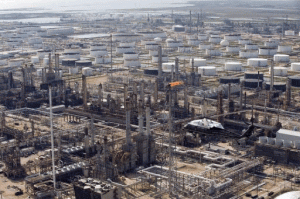Marathon Petroleum has agreed to buy BP's Texas City Refinery and related marketing and logistics assets for as much as $2.5 billion. The refinery has a 451,000 b/d capacity and is positioned well to benefit from growing production in plays like the Eagle Ford.
The deal includes several related assets:
Texas City refinery, three intrastate NGL pipelines originating at the refinery, an allocation of BP's Colonial Pipeline Company shipper history, four terminals, retail marketing contract assignments for approximately 1,200 branded sites and a 1,040 megawatt cogeneration (cogen) facility. The base purchase price is $598 million, plus inventories estimated at $1.2 billion. The agreement also contains an earnout provision under which MPC could pay up to an additional $700 million over six years, subject to certain conditions. The transaction is expected to be accretive to earnings in the first year of operation. The acquisition is expected to be funded with cash on hand, and is anticipated to close early in 2013, subject to customary closing conditions and regulatory approvals.
Read more at marathonpetroleum.com

